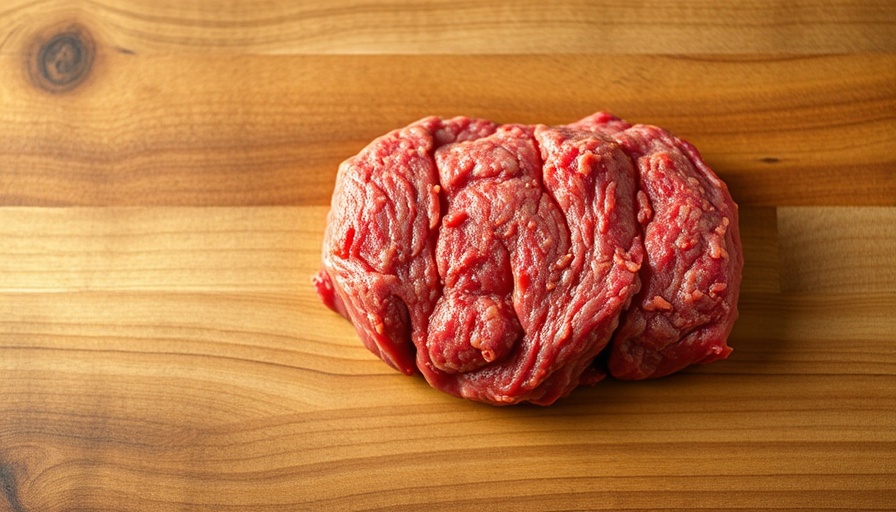
Whole Foods Under Fire: E. Coli Contamination Finds a Way In
In a shocking revelation for health-conscious consumers, Whole Foods Market has issued a nationwide recall of its organic ground beef due to contamination with E. coli O157:H7. This situation, highlighted in a recent public health alert by the U.S. Department of Agriculture (USDA), serves as an unsettling reminder of the vulnerabilities present in our food systems, even when products carry an organic label.
What Exactly Happened?
The implicated beef products, sold under the “Organic Rancher” brand, were shipped to 27 states and Washington, D.C. The USDA provided specific details about the products to be vigilant for, including their production dates (May 22-23, 2025) and use-by dates (June 19-20, 2025). To date, no illnesses have been reported, but the USDA cautioned consumers that symptoms of E. coli infection can take days to surface.
Understanding E. Coli O157:H7 and Its Risks
E. coli O157:H7 is notoriously dangerous. It’s a toxin-producing bacterium that can lead to severe gastrointestinal discomfort, bloody diarrhea, and, in extreme cases, kidney failure. Vulnerable populations, including young children and the elderly, face heightened risks. This recalls not just the food product itself, but broader implications for food safety and consumer trust.
The Flaws in Industrial Food Processing
This incident exposes flaws not just in the hybridization of organic claims and industrial methodologies but also highlights the complex distribution networks that allow a single batch of contaminated beef to reach thousands of consumers across the nation. It raises critical questions about the effectiveness of food safety oversight amid the fast-paced dynamics of food production and distribution.
Whole Foods and the Illusion of Organic Purity
Whole Foods, often touted as a supplier of high-quality, ethically sourced foods, faces increased scrutiny regarding its food safety protocols. With its ownership under Amazon since 2017, concerns over corporate accountability arise, especially when consumer trust hinges on effective quality control practices. Despite claiming high standards, incidents like this prompt a reconsideration of what “organic” truly means.
Community Impact and Consumer Sentiment
For many, shopping at Whole Foods represents a commitment to eating cleaner and healthier foods. Buyers invest in organic products based on perceived safety. When issues like this arise, it doesn’t just threaten health; it also undermines consumer confidence in the food system as a whole. As a community in Massachusetts, a state known for its health-conscious mentality, residents might find themselves reevaluating their purchasing habits.
Next Steps for Consumers
The USDA recommends immediate action for anyone who has purchased the affected beef. It encourages consumers to discard or return these products to the place of purchase. Furthermore, cooking meat to a safe internal temperature of 160°F can help prevent E. coli infections, a reminder that individual precautions are as crucial as corporate accountability.
Future Repercussions: What to Expect?
Looking ahead, this incident may push for more rigorous standards and regulations within the organic food sector. Expect increased scrutiny on producers and transparent communication from retailers to bolster consumer confidence. While this case doesn't suggest a fundamental flaw in organic farming, it does highlight the necessity for stronger oversight in food safety to protect our communities.
Create Change in Your Food Choices
The repercussions from this incident extend beyond consumer markets; it opens conversations on the essential role consumers play in demanding safer practices from food suppliers. For those interested in alternative healthy eating options, this incident could provoke discussions on where and how to source food responsibly. Consider supporting local farms or markets that prioritize transparency and safety.
In light of these recent developments, stay informed about the food you consume. Monitor recalls and engage with your local food suppliers to build a safer food ecosystem that supports health and sustainability.
 Add Row
Add Row  Add
Add 




 Add Row
Add Row  Add
Add 

Write A Comment